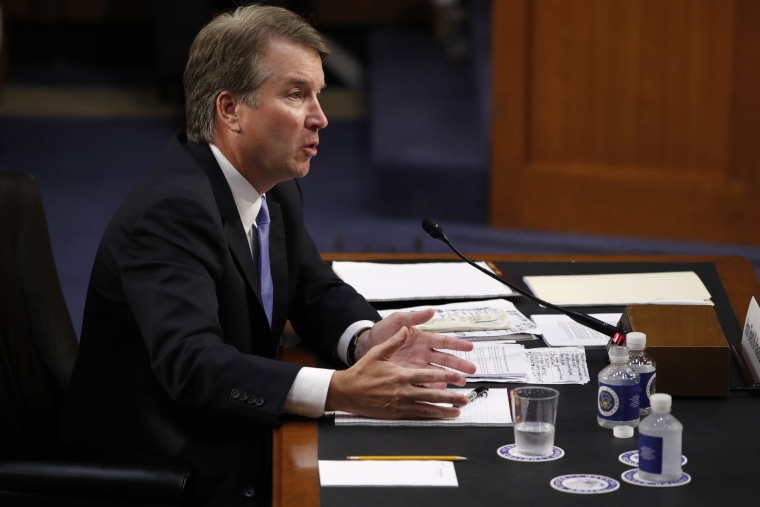Headed into last week's televised confirmation hearings, Brett Kavanaugh was an unusually unpopular Supreme Court nominee. Perhaps Donald Trump's pick for the high court would make a better public impression after Americans had a chance to hear him talk about his record and approach to the law?
Americans are divided on whether or not senators should vote to confirm Brett Kavanaugh to the Supreme Court, with 38% who say yes and 39% who say no, according to a new CNN Poll conducted by SSRS and released on Tuesday.Contentious hearings did not move the needle in either direction for Kavanaugh. The new numbers are similar to CNN's August poll, when 37% supported his confirmation and four in 10 did not.
The last Supreme Court nominee to have support this low was Robert Bork -- in a poll conducted exactly 31 years ago this week -- whose Reagan-era nomination ultimately failed in the face of bipartisan Senate opposition.
In mid-July, Trump boasted about the popularity of his Supreme Court nominee. "Brett Kavanaugh has gotten rave reviews -- rave reviews -- actually, from both sides," the president said. "And I think it's going to be a beautiful thing to watch over the next month. But he has gotten rave reviews."
That was two months ago. The public doesn't appear to see Kavanaugh's nomination as "a beautiful thing."
As for why Kavanaugh’s support is weak, and whether it’ll matter, the questions get a little tricky.
Circling back to our earlier coverage, there's more than one possible explanation. It’s easy to imagine, for example, that Donald Trump is unpopular, so his Supreme Court nominee is unpopular simply by virtue of the association.
Accusations that Kavanaugh lied to the Senate Judiciary Committee, more than once, probably haven't helped.
But I continue to suspect that much of the opposition is driven by fear of the likely consequences of Kavanaugh’s confirmation – including, among other things, the expected demise of the Roe v. Wade precedent – and the dramatic changes a newly emboldened, far-right Supreme Court might impose.
As for whether public attitudes will matter or not, it certainly won't hurt. Senators who find themselves on the fence about Kavanaugh might consider, at a minimum, Americans' concerns.
The better question, however, is just how many senators genuinely may find themselves on the fence.
